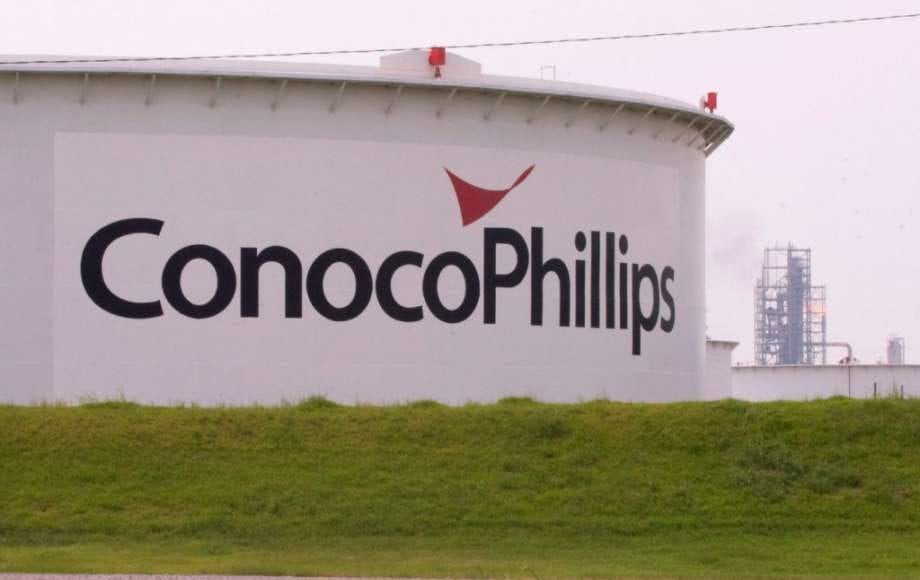ConocoPhillips unveiled a long-term plan on Tuesday to boost oil and gas production by about 3% per year, restrain annual spending to about $7 billion and return $50 billion to shareholders over the next decade.
The announcement comes as investors, frustrated by weak commodity prices for five years, have been pressuring oil and gas companies to cut back on drilling and shore up cash to return to shareholders.
The Houston-based company’s shares closed up a fraction at $57.17 on Tuesday.
ConocoPhillips has been one of the better-performing energy stocks, having dropped 8% this year, compared with a key industry index, the SPDR S&P Oil & Gas Exploration & Production ETF, which has sunk about 22%.
The largest U.S. independent crude producer said it expects to spend about $20 billion on dividends and $30 billion in share buybacks in 10 years.
“We challenge any other (exploration and production) company to show you a plan like this,” Chief Executive Ryan Lance told analysts and investors in Houston.
While the industry is “struggling to gain relevance and attract capital,” the company resembles a larger oil major with a plan for low production growth and returning cash to shareholders, said Jennifer Rowland, analyst with Edward Jones.
“The offset is I think this is already fairly reflected in the company’s valuation,” Rowland said.
ConocoPhillips expects several decades ahead of lackluster oil prices, with U.S. oil to average between $40 to $70 per barrel through the 2050s. Ride-sharing, electric vehicles and urbanization will impact demand for the company’s products, but Executive Vice President Matt Fox said oil and gas would remain an important part of the energy mix through 2050.
ConocoPhillips will spend about $4 billion per year on shale, running about 20 drilling rigs across four fields, and boosting shale production from more than 400,000 barrels per day (bpd) next year to around 900,000 bpd by the end of the decade, it said.
Its net debt will be around $6 billion at the end of this year, down from $24 billion in 2016.
It plans a future sale of 25% of its Alaska assets, in line with its practice of not holding 100% equity in major projects.
ConocoPhillips has been divesting assets to focus on shale. In October, it posted a quarterly profit that beat analysts’ estimates, as higher shale production offset lower crude prices and higher exploration costs.



